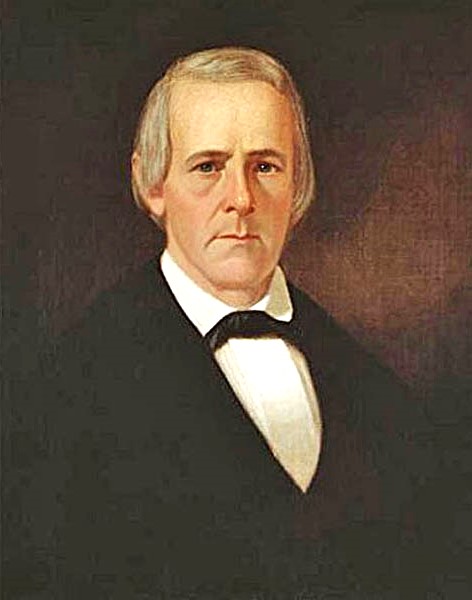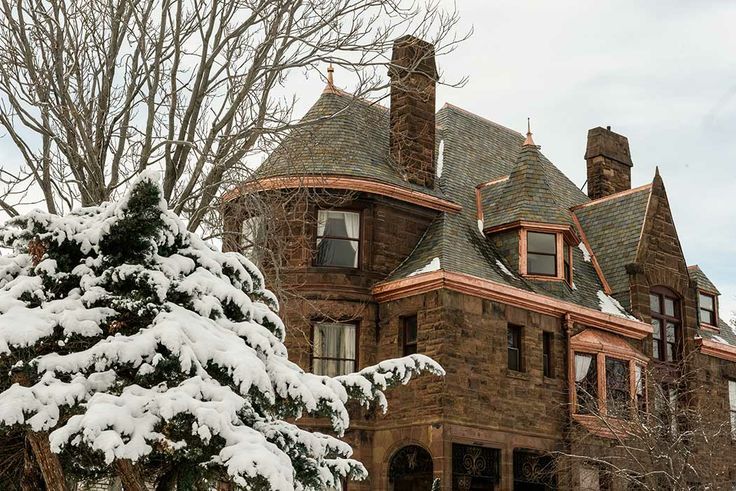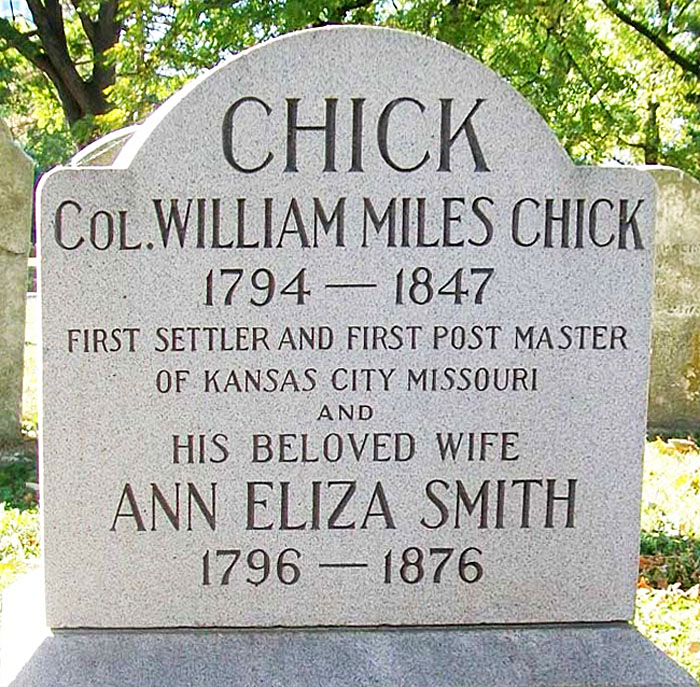
William Chick - Kansas City Founder & Pioneer
William Miles Chick was born August 31, 1794, near Lynchburg, Virginia, and worked as a merchant in the Alexandria area during his early adulthood. As a young man he received the commission of colonel from the Governor of Virginia, along with orders to raise a regiment of volunteers to fight the British in the War of 1812, although peace came before Chick and his men saw action. In 1816 he married Ann Eliza Smith, a young woman from Alexandria.


In the summer of 1826, the small farm they had carved out of the wilderness was destroyed by a rampaging Missouri River. Houses, crops, and even much of the land itself were swept away in the flood, but the persistent Chick simply moved accross Missouri flood, but the persistent Chick simply moved across the Missouri to Howard County and established a new farm. For the next ten years he grew the crop so important to his home state of Virginia; tobacco.
Although successful in this venture, Chick’s mercantile impulse led the family farther west in 1836, when he purchased a two-story log building in Westport from John Calvin McCoy, who had recently platted the new town, home to about 50 families at that time. With his wife and children—he and Ann Eliza eventually had nine—living above, Chick operated a store on the ground level, and soon saw a brisk trade with Native Americans and Santa Fe tail traffic.
An increase in westward trail travelers inspired Chick in 1838 to join with McCoy and others in forming a group of investors to establish what they called the “Town of Kansas.” The group bought at auction the land of Gabriel Prudhomme, a recently deceased French settler who had owned the riverfront area several miles directly north of Westport. The site included a natural stone outcropping that the investors believed would make an excellent wharf for steamboats to unload men and supplies closer to Westport than any other landing then in use.
Chick eventually closed his Westport store and became one of the first businessmen to operate on the riverfront; he built a warehouse there in 1843, in which for a commission he stored furs awaiting shipment downriver. On the nearby bluffs he began constructing the area’s first large residence, and when flooding in 1844 destroyed a West Bottoms farm he had also established, the Chick family moved into the new house for good. Soon he was conducting a ferry business across the Missouri and became the new town’s first postmaster, accepting letters that bore the somewhat confusing postmark “Kansas, Missouri.” Historians now consider this area to be Kansas City’s original town site, and William Chick, who died of pneumonia there in April 1847, to be one of its primary developers and promoters.

